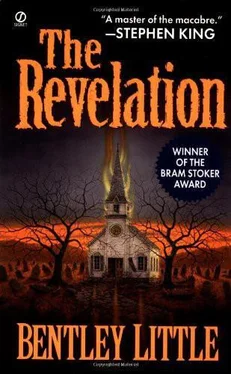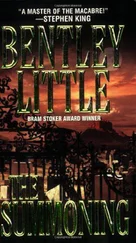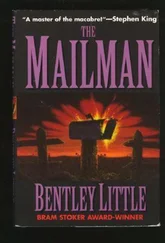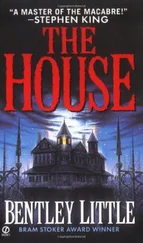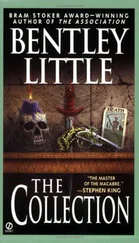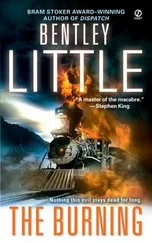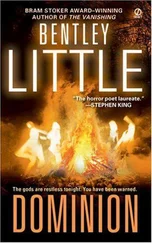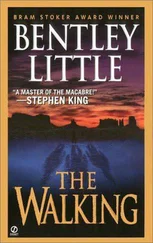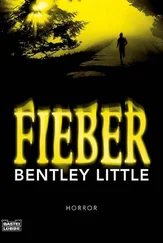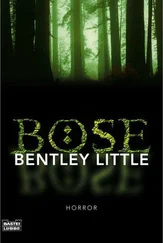Marina smiled feebly. "Well, about a month ago ..."
He didn't laugh. His face, instead, was strained, almost angry. "What happened? Didn't your pills work?"
"Obviously not."
The Jeep sped past Char Clifton's 76 station on the way out of town.
Gordon shook his head. "Isn't the percentage of failures about point-one percent?"
"Something like that."
He looked at her suspiciously. "You have been taking them, haven't you?"
"That's not even worth answering." Her voice was cold.
His eyes met hers. "Okay," he said. "I'm sorry."
"You should be." Now it was her voice that was angry. "I'm the one who didn't want kids in the first place, remember? I'm the one who'd have to carry the baby for almost a year and then be its constant slave for another two. I'm the one who'd have to feed it and take care of it."
"Okay. I'm sorry."
They drove for a while in silence.
"So tell me what happened."
Marina sighed. "I didn't get my period when I was supposed to. I waited a week, then another few days, then I called Dr. Waterston. I thought about telling you, but ... I wasn't sure. I didn't want to worry you. So I decided to keep quiet until I knew for certain. He gave me the test a few days ago." She stared out the window, watching the green blur of the passing scenery as the Jeep zoomed down the winding road through the forest. A hazy pre storm sunlight filtered in prison slats through the trees.
"And?" Gordon prompted.
She turned to face him. "And?"
"Come on."
She sighed again and her voice, when she spoke, was low, mumbling, as though she were talking to herself rather than him. "I was praying to God I wasn't pregnant. I knew something like this would happen."
"Yes?"
She shook her head, her eyes half-closed. She looked tired, and she pushed a stray wisp of hair back from her eyes. "You know about Julie Campbell's baby, right?"
He nodded, frowning. In June, Julie Campbell had gone into labor a full five months early; the doctors still did not understand why. The premature birth, in the back of the maternity ward at Randall General Hospital, had been little more than an abortion. The stillborn fetus had been only a little bigger than a fist, its body and facial features not yet fully formed.
"And Joni Cooper's baby last year?"
Joni Cooper's baby had also been stillborn and premature.
He nodded again.
"And Susan Stratford's?"
"So what are you trying to tell me? That you're afraid to have a baby?" His voice softened. "Look, delivering a baby is a smooth procedure. Those three were just a fluke. We'll go down to Phoenix and have a real doctor look at you. In a real hospital. They have tests for these kinds of things. We'll find out beforehand if the baby will be retarded, deformed, what the chances are for a premature birth or a stillbirth. Hell, we'll even find out whether it's going to be a boy or a girl."
"We'll try the tests," she said. "But ..." She paused, trying to think. She closed her eyes, massaging the lids with the thumb and forefinger of her right hand. She opened her eyes and looked at Gordon. "They're probably not flukes. Dr. Waterston thinks they're connected."
His gaze snapped toward her.
She pointed out the windshield. "Keep your eyes on the road."
"What the hell are you talking about?"
"He doesn't know what it is. He doesn't know if it's anything. But think about it. All three of them--Julie, Joni, and Susan--live north of town, like we do. All of them are under thirty-five, like we are.
All of them get their water from the Geronimo Wells pump--"
"The fucking water!"
"We don't know if it's--"
"I should've known it!"
"Known what? There's nothing to know. Dr. Waterston just pointed out all the things that Julie, Joni, and Susan have in common. It may be nothing; it may not."
"It may be nothing?"
"Look, they might be coincidences. Dr. Waterston just thinks, possibly, that it might be something else, and he wanted to warn me.
Just in case."
"It might possibly be something else? Three dead babies in the space of one year? In a town this small?"
"You were the one who said they were probably flukes."
"I was wrong, okay? I was wrong." They had driven past Tonto Wash and were coming up on the small dirt side road that led to their house.
Gordon was silent for a few moments. His face, when she looked at it, was working silently in a confusion of anger and frustration. His brow was furrowed, his jaw clenched. He slammed on the brakes of the speeding Jeep, slowing down, and turned onto the dirt road. "There has to be some kind of investigation into this," he said. "I'm calling the EPA, the county government the state government, everyone I can think of. Goddamn it, there are going to be some lawsuits."
"Lawsuits against who?"
"Against ..." He faltered. "Against whoever it is that's causing this." He pulled up in front of their house and cut the Jeep's engine.
He sat silently for a minute, staring out at the line of trees next to the car. He breathed deeply, audibly. When he spoke again his voice was quiet. "What do you want to do?"
"Well, I think we should go to Phoenix like you suggested, and have some tests run." She put her hand on his. "Then we can start talking about the normal questions: Do we want a baby? Can we afford a baby?
All that."
"The normal questions." Gordon smiled sadly. "Jesus."
The sky was completely black now, all traces of the hot morning sun erased. A drop of water fell on the windshield. And another. And another. Marina motioned toward the house. "We'd better get in. It's starting to rain."
Gordon said nothing. She stared at him for a moment, then shifted her attention to the rain-splattered windshield. Several drops exploded on the glass, causing a network of minuscule waterfalls to cascade down the window to the cracked rubber of the windshield wipers where the water formed two small pools. Out of the corner of her eye, she saw Gordon shift in his seat, heard him pick up the set of keys from the seat between them. He opened his door, got out, and made a dash for the house. She waited a few moments, until he had unlocked the front door of the house, and then followed him. By the time she reached the porch, it was raining heavily, huge hail-sized drops pelting the broad leaves of the oak tree next to the door and causing the loose gravel of the drive to skitter about with noisy click-clacks.
Inside, the house had retained the morning heat despite the cold rain outside. It seemed stuffy, uncomfortable, and Marina went around the house opening all of the windows to let in the cool water-freshened air. Gordon put his keys on the kitchen counter then moved to the front doorway, where he stood looking out through the screen. The thick monsoon clouds formed a wet ceiling above the forest, blocking out even a partial view of the Rim. "Damn," he said.
Marina finished opening the windows in the back of the house and returned to the living room. "What?" she said.
Gordon tried to smile for her sake. "I said "At least it's cool."" She stood next to him and put her arm around his waist, snuggling into the crook under his arm. She looked with him out the screen door toward the forest. Her eyes brimmed with tears, but she did not allow him to see them. The tears flowed freely down her cheeks. "Yes," she said softly. "At least it's cool."
Jim Weldon slept for ten hours straight--a record for him--and for the first time in almost a month his sleep remained undisturbed by nightmares. He was exhausted; his body and brain were just too damned tired to allow him to dream, and he lay on the bed unmoving from four in the morning until two in the afternoon.
He had never had a day like this before.
The morning had dawned clear and hot like any other, and he'd gotten to the office by eight. He'd expected a few minor complaints, maybe some drunks or speeders, then an afternoon of paper shuffling and serious rest. But Tim Larson had called less than an hour later with news of the vandalized Episcopal church, and by noon the investigation had spread to include the mysterious disappearance of the Selway family and the series of goat mutilations, which apparently stretched all the way from the Green River Ranch south of town to Bill Heard's place up on the Rim. The bodies of Loren Wilbanks and Clay Henry, or what was left of their bodies (connected somehow with the goat mutilations?), had been discovered by a neighboring rancher late in the afternoon, and by the time they had dusted for prints, taken the pictures, examined the house and carted off the bodies six hours later, the other five churches in Randall had been vandalized. Although the desecration of these churches had to have taken place between six and ten p.m."
Читать дальше
